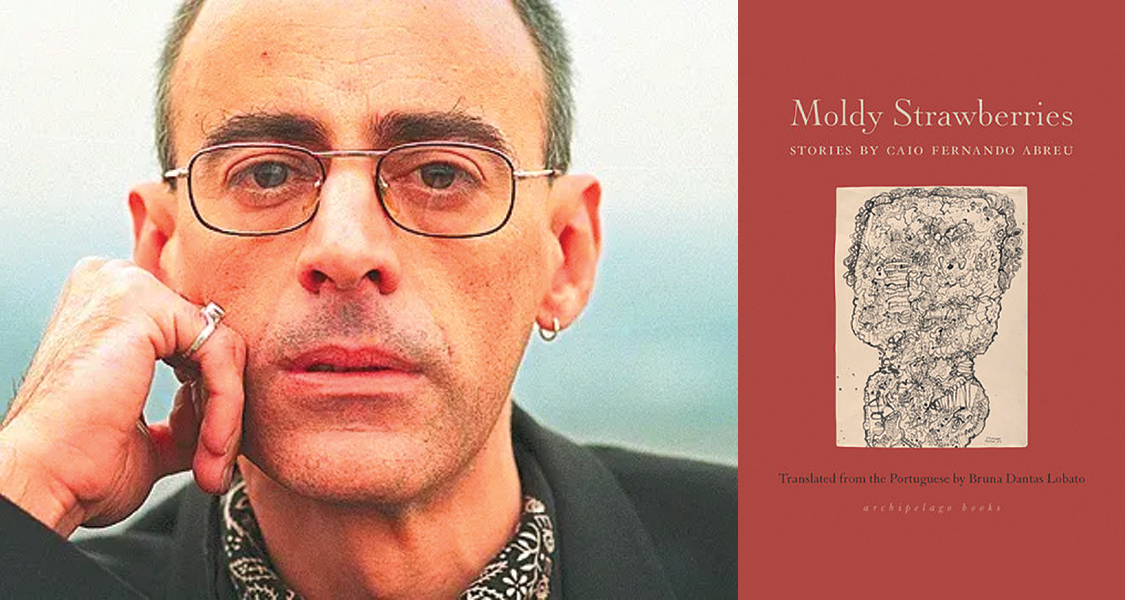Moldy Strawberries by Caio Fernando Abreu, translated from the Portuguese by Bruna Dantas Lobato, Archipelago Books, 2022
Moldy strawberries: just past the point of ripeness, bursting with life until they exude decay. Sweet yet bitter, delicious yet spoilt, nourishing yet rotten. It is this dichotomy that sustains Caio Fernando Abreu’s Moldy Strawberries, tenderly translated from the Portuguese by Bruna Dantas Lobato: a collection of short prose pieces and stories that brims with life even as its flesh bruises.
Abreu (1948-1996) came of age in a turbulent time in Brazilian political history. In 1968, the Department for Political and Social Order put him on the watch list they used to target their ideological opponents, and Abreu subsequently spent time in exile across Europe—in Spain, Sweden, the Netherlands, England, and France. While his writing was heavily censored by the Brazilian authorities, he nonetheless became one of the country’s most beloved queer writers, winning the prestigious Jabuti Prize for Fiction three times for his luminous work.
Moldy Strawberries is considered by many to be his magnum opus. Published in 1982, its vivid depictions of queer communities amidst the perils of the military dictatorship, rising homophobia, and the looming AIDS crisis serve to affirm life even when the threat of death feels ever-present. In eighteen prose pieces, which range from dialogues and vignettes to fully developed stories, Abreu’s writing bears witness to humanity in all its fragile glory. His prose affirms the possibility of love, desire, and connection—or at least indulges that dream. READ MORE…


